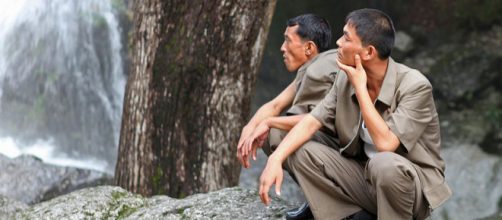Donald Trump and Kim Jong-un want to hold a summit in Singapore next month to decide on international issues like denuclearization, but no one appears to be worried about the plight of the North Koreans. They need humanitarian aid and a section of South Koreans have risen to the occasion. They want to spread the spirit of goodwill and show that they care.
CNN reports that there are people who regularly send messages in bottles for their less lucky brethren. They float the bottles stuffed with uncooked white rice and a single US dollar bill, along with a selected range of common medicines and a USB.
This device contains information from the outside world along with videos that feature interesting subjects. The message says - "God loves you."
The plight of North Koreans
According to the UN, nearly 41 percent of the population in North Korea is undernourished. They do not get proper medical care. Doctors had found worms in the stomach of a defector – he was a soldier who fled across the DMZ last year.
Groups of well-wishers, irrespective of religious beliefs, have been sending across food and information into the hermit kingdom. One of them is Tim Peters, an American missionary who has lived for years in South Korea. He passes on small plastic bags full of seeds. He met Donald Trump in the White House and had apprised him about the living conditions in North Korea.
When Kim Jong-un and Moon Jae-in met at the DMZ in late April, it was hailed as a historic occasion. It led to many emotional reactions from the people on both sides. However, no one has bothered to highlight the pathetic condition of the North Koreans. Kim is likely to meet Donald Trump for the summit in Singapore and the issue of human rights should figure in the talks.
Actions for peace identified
One of the first decisions taken at the meeting between Kim Jong-un and Moon Jae-in, was to remove all loudspeakers that broadcast propaganda material at the border and also stop the distribution of leaflets to the other side. This was meant to de-escalate tensions. However, the authorities in South Korea wants the activists to discontinue the practice of sending across messages and humanitarian aid in bottles.
Those who send the bottles filled with food, medicines, and information have no means of knowing whether their mission helps their brethren on the other side of the border. However, the feedback they have from South Korean border guards is positive. It seems the North Korean soldiers and civilians do collect the rice-filled bottles once they wash up on the shore.
Let us hope that the sensitive issue of human rights will be on the agenda of the summit between Donald Trump and Kim Jong-un in Singapore


